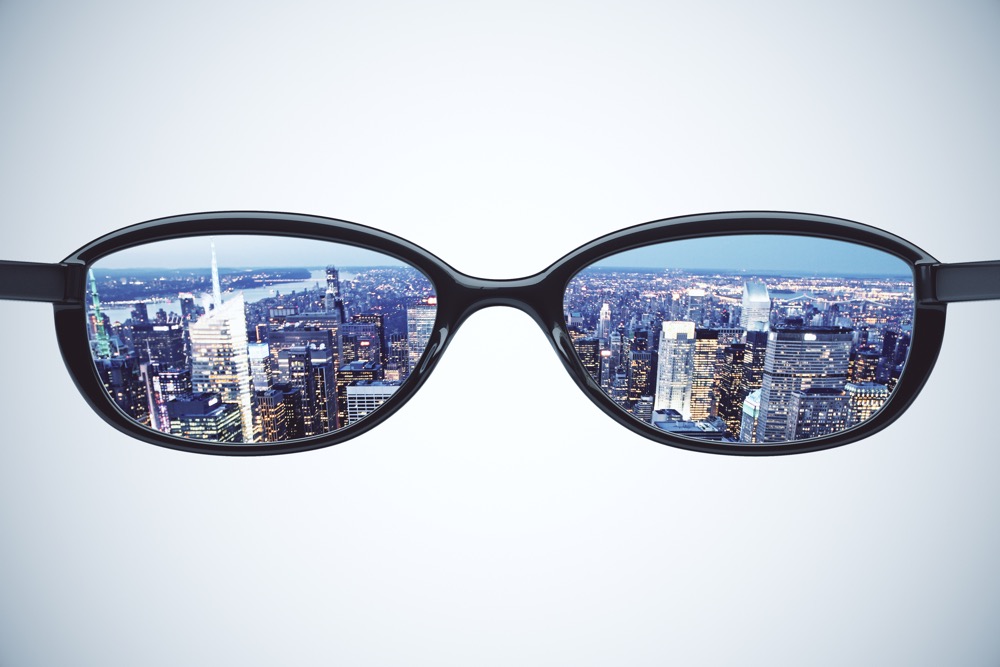I’ve worn glasses for a couple years now. In some ways, I’m still getting used to them. Like just how quickly they build up dirt.
A couple of weeks ago, I went to put them on and noticed some spots on the lenses that needed cleaned off. I grabbed a clean cloth, started wiping, and couldn’t believe how much dirt came off! It was a little unsettling.
I had no idea that my glasses had built up that much gunk. For the most part, I could see through them just fine. It was only when I took them off and looked at them instead of through them that I was able to see just how dirty they were.
Step back and think about how you see the world. Every one of us—no matter how good our eyesight is—has a pair of glasses in front of our face. These lenses affect how we see everything around us.
The lenses are shaped by our experiences in life. Everything we learn and live through—or even aspire to—affects how we see the world around us. Two people standing next to each other will see two different things. The differences can be astounding, and they can catch us off guard if we assume they’re seeing exactly the same as what we’re seeing.
As light comes in, it’s refracted, hopefully for the better, sometimes for the worse. Sometimes, things are so warped and distorted that we have a hard time seeing things as they really are.
Ever been hit in the face by a ball you weren’t expecting? Reality (a ball is coming right at you) didn’t match up with your perception (ball? what ball?). You then experienced a painful transition as your perception was brought into alignment with reality.
It works the other way, too. If you think a ball is headed for your head, you’re going to duck. It doesn’t matter whether there actually is a ball coming at you, the belief alone is enough to cause you to act.
In neither case are you in a good position. Either you’re going to get blindsided, or you’re tilting at windmills.
From time to time, we need to step back and stop looking through our glasses long enough to look at them. That’s when we see how dirty they are, how distorted they make things appear, and how much we need to clean them. They may be more than we can take on ourselves, and we need the help of someone we trust to help us see where the blind spots are.
If you’re getting blindsided, find out why. Did you not have complete information? Were you burying your head in the sand, or surrounded by yes-men? Ignorance is only bliss until it catches up with you.
Tilting at windmills is harder to correct. You’re imagining a problem where there is none. Maybe we’re addicted to drama or adrenaline, so we start fires just so we have fires we can put out. Or we’re still processing a painful past, and we have a hard time injecting the trust into a relationship that really should be there.
When there really is a problem, you’ll want your perception to be as clear as possible. You’ll see problems earlier, when they’re smaller and easier to manage. You’ll see the exact nature of the problem more precisely, and know the most effective way to tackle it.
With clear perception, you can also see when everything’s humming smoothly. All your tasks are captured, so there’s nothing swimming around in your head, competing for your attention. You know your trusted system will remind you of anything you’ve forgotten about when the time is right. You’re not worried. You’re not stressed.
You work when it’s time to work, and then you play.
You just need to take the time to clean your glasses.
Question: How do you tell your glasses aren’t as clean as you think they are? Share your thoughts in the comments, on Twitter, LinkedIn, or Facebook.

